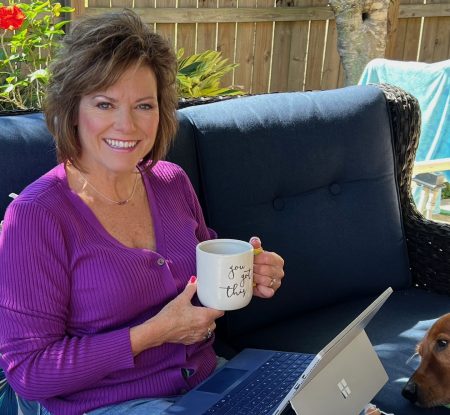“I need to brake before I break!”
Those were the words I typed in an email to my team member recently. I had just wrapped up one of the busiest seasons evah in my business, filled with lots of in-person speaking and team retreats.
When I typed those words, I was feeling depleted and just downright tired.
And apparently, I’m not the only one. In basically every program I have led in the past 2 ½ years the topics of stress, burnout, anxiety, and mental health have come up, with participants sharing many of their own struggles.
During the shutdown one of my CEO clients said “Jen, it’s not that I’m working from home but that I’m sleeping at the office.” She was referring to the fact that previously established boundaries between work and home had been blurred, if not completely erased.
In fact, a recent study revealed that executives and leaders are experiencing 20% worse work-life balance and 40% more work-related stress and anxiety over the past year. Are you in that number?
And let me just be clear here… I’m not a “fan girl” of the term “work-life balance.” Life is not just what you do outside of work. There is no compartmentalization. You are one whole human being. If your life outside of work is a dumpster fire, I’m pretty sure you’re carrying that stress with you into work. And of course, vice versa.
Author Anne Lamott says,
“Almost anything will work again if you unplug it for a few minutes…. including you.”
We do this with machines, computers, and mechanical objects when they act up, heat up, or break down. So, shouldn’t this all apply to people – to our bodies? Let’s give ourselves at least the same care.
Remember, nothing in nature blooms year-round.
As a leader, I get it. you’re focused on getting bottom-line results. But you can’t disregard your own well-being in the process. And although you might be skeptical as HAIL, thinking this is just Jen being woo-woo, keep in mind that if you collapse due to stress and health issues you won’t be achieving those business results anyway.
So, taking care of your own well-being is in service to your organization. Self-care is never selfish.
Here are some steps leaders can take to recharge their batteries:
1) Make a list of those things/activities/hobbies that energize you. Go do that now. I’ll wait. (This could be fishing, spending time in nature, baking cookies, gardening, chasing a golf ball around, taking long hot bubble baths, cooking, working out, meditating, playing with your kids, getting a break from your kids, reading, macrame’, napping, underwater basket weaving … you get the picture.)
2) Now take out your calendar. Where and how can you schedule as many of those activities into your upcoming week? Schedule them. Yes, schedule the bath. You know if it’s on your calendar you’ll do it.
3) Make a list of those things/activities/people who drain you. Go ahead – you know the drill. (These could include grocery shopping, filing, social media, your Judgey McJudgey “friend” who always manages to toss an insult into your convos, working out, cooking, or watching the news.)
4) Put on your brainstorming cap. Without editing your responses, write down any and all ideas of how you could reduce the amount of time you spend doing these draining activities (or with these draining people) or how you might make it a little less distasteful. (These could include swapping chores, ordering groceries and basically anything else you could ever want online, delegating, reducing the frequency of visits, pairing a “meh” task with a pleasant activity, like listening to an engaging podcast while working out.)
Now listen, ya’ll. I’m the first to admit that a beach/mountain/European vacation will recharge my batteries just fine. But these are ideas that you can put into practice in the here and now.
For me, I’m spending time outdoors in nature – yes, even in the middle of a bizzy work day. (Can you say lunch on the patio?) I’m also scheduling more white space in my weeks to allow for a less frantic pace and I’m picking up a hobby that I had put down for a while. I know this break will allow me to come back to my work with more energy, focus, and enthusiasm.
My clients, my family, and everyone I interact with will benefit from me creating this space.
How about you? In what ways will you put on the brakes before you break?
I love knowing you’re getting value from my insights and stories. So, I invite you to take a moment hit reply with a quick comment. I also love hearing how you’re using these ideas in your organization, your leadership team, and your life — so please let me know.





